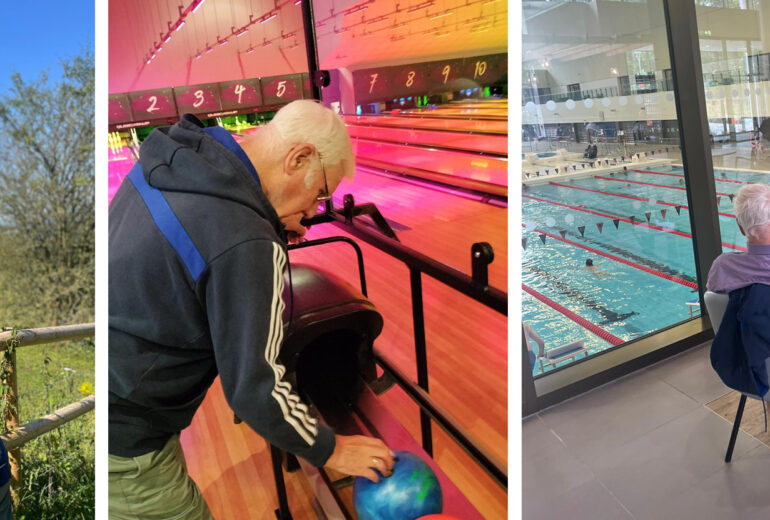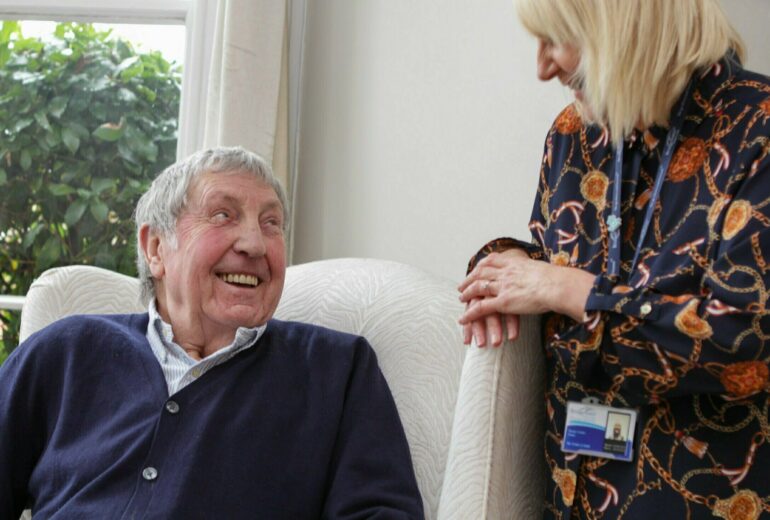Memory Loss Care: How Music and Art Therapy Can Benefit Dementia Patients
Dementia is a complex condition that affects around 982,000 people in the UK, leading to cognitive decline and impairing daily functioning.
For those living with dementia, finding ways to enhance their quality of life and manage symptoms is crucial, with exercises such as memory loss care providing experiences to aid people living with dementia.
Music and art therapy have emerged as powerful tools in this memory loss care, offering numerous benefits for dementia patients, with various studies identifying improved mental health in patients with dementia following exposure to music and art therapy.
Memory loss care: 4 Benefits of Music Therapy
1. Evoking Memories: Music has a unique ability to trigger memories and emotions, even in individuals with severe dementia.
Familiar songs from a patient’s past can evoke recollections of significant events, people, and places, helping them connect with their own history.
This can be incredibly comforting and can provide a sense of identity and continuity.
2. Reducing Anxiety and Agitation: Dementia often leads to increased anxiety and poor mental health.
Music therapy can help soothe and calm patients, reducing these symptoms.
Listening to or participating in music through memory loss care can create a peaceful and enjoyable environment, promoting relaxation and emotional stability.
3. Enhancing Communication: For patients who struggle with verbal communication, music provides an alternative means of expression.
Singing, humming, or playing instruments as memory loss care can help individuals express their emotions and thoughts, fostering a sense of connection with caregivers and loved ones.
4. Improving Cognitive Function: Engaging with music can stimulate various areas of the brain, potentially improving cognitive function.
Activities like singing, playing instruments, or even rhythmic movement to music can enhance memory, attention, and executive function, contributing to better overall mental health.
Memory loss care: 4 The Benefits of Art Therapy
1. Promoting Self-Expression: Art therapy offers dementia patients a non-verbal outlet for self-expression.
Creating art allows individuals to convey feelings and experiences that may be difficult to articulate through words.
This creative process can be both therapeutic and empowering.
2. Encouraging Social Interaction: Group art therapy sessions provide opportunities for social interaction and collaboration.
Working on art projects with others can help combat feelings of isolation and loneliness, fostering a sense of community and belonging.
3. Enhancing Motor Skills: Engaging in art activities such as painting, drawing, or sculpting can help improve fine motor skills and hand-eye coordination.
These activities encourage patients to use their hands and fingers, promoting dexterity and physical engagement.
4. Boosting Mood and Well-Being: The act of creating art can be immensely satisfying and enjoyable. It can boost mood, reduce feelings of depression, and enhance overall well-being.
The sense of accomplishment from completing an art project can also increase self-esteem and confidence.
Implementing Music and Art Therapy in Memory Loss Care
Incorporating music and art therapy into memory loss care for patients suffering with dementia requires a personalised approach.
Understand Preferences: Learn about the patient’s musical and artistic preferences. What songs or types of music did they enjoy in the past? What kind of art activities are they interested in? Tailoring therapy to individual preferences can maximise its effectiveness.
Create a Safe Environment: Ensure the environment is safe and conducive to creative activities. Remove any potential hazards and provide appropriate materials and tools for art projects.
Encourage Participation: Encourage patients to actively participate in music and art activities. Whether it’s singing along to a favourite song, playing simple instruments, or engaging in a painting session, active involvement is key to reaping the benefits.
Be Patient and Supportive: Patience and support are essential. Dementia patients may have varying levels of ability and may need gentle encouragement. Celebrate their efforts and achievements, no matter how small.
Music and art therapy and memory loss care offer invaluable benefits for individuals with dementia, enhancing their quality of life and providing meaningful ways to connect with themselves and others.
By tapping into the therapeutic power of music and art, caregivers and healthcare providers can help dementia patients navigate their journey with greater comfort, joy, and dignity.
Get in Contact with Expert Dementia Care Specialists
At Bridgewater Home Care, we provide specialist dementia support and memory loss care, such as routine planning, medication assistance, and meal planning, as well as enriching patients experience with music and arts and crafts therapy.










